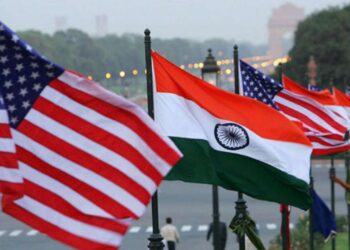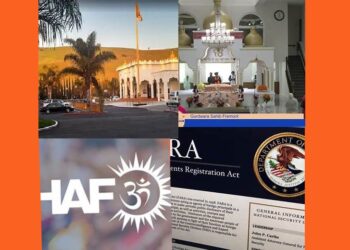For the first time, Prime Minister Narendra Modi has addressed allegations of an Indian involvement in an assassination plot in the US, expressing his willingness to examine any evidence while emphasising that a “few incidents” would not disrupt the strengthening ties between the US and India.
In an interview with the Financial Times, the Indian Prime Minister downplayed the diplomatic consequences of a recent US indictment, asserting that the claim of an Indian official orchestrating the attempted murder of a Sikh separatist on American soil wouldn’t significantly impact bilateral relations.
Modi stated, “If someone provides us with any information, we will certainly look into it. If a citizen of ours has done anything good or bad, we are ready to look into it. Our commitment is to the rule of law.”
The alleged target of the assassination attempt was Gurpatwant Singh Pannun, an American and Canadian citizen who serves as the general counsel for the separatist group Sikhs for Justice, according to individuals familiar with the case. Pannun, designated as a terrorist by India in 2020—an assertion he denies—has been at the centre of ongoing tensions. India has consistently accused Western nations of not adequately addressing its security concerns related to Sikh separatism, which has a tumultuous history in South Asia.
Modi said India was “deeply concerned about the activities of certain extremist groups based overseas”, adding, “These elements, under the guise of freedom of expression, have engaged in intimidation and incited violence.”
“If someone provides us with any information, we will certainly look into it. If a citizen of ours has done anything good or bad, we are ready to look into it. Our commitment is to the rule of law.”
Narendra Modi
The suspicion surrounding New Delhi’s purported role in the plot has added complexity to the relationship between the United States and India, a partnership President Joe Biden has characterised as “among the most consequential in the world.”
However, Modi asserted, “There is strong bipartisan support for the strengthening of this relationship, which is a clear indicator of a mature and stable partnership. “Security and counter-terrorism co-operation has been a key component of our partnership,” he added. “I don’t think it is appropriate to link a few incidents with diplomatic relations between the two countries.”
In June, Modi made a state visit to Washington, while Biden reciprocated by visiting New Delhi for the G20 summit in September. During these encounters, both leaders reached agreements to expand cooperation across various domains, ranging from high-tech initiatives to defence.
Responding to the US allegations, India’s foreign ministry previously declared the establishment of a high-level committee to probe the matter, committing to take necessary follow-up action. The disclosure of the New York indictment in November followed Canadian Prime Minister Justin Trudeau’s statement in September, suggesting an investigation into whether “agents” of New Delhi were involved in the June killing of Sikh separatist Hardeep Singh Nijjar in British Columbia. India dismissed the claim as “absurd” and responded by expelling 41 Canadian diplomats.
These cases in the US and Canada have sparked concerns among India’s western partners about the potential involvement of New Delhi in extrajudicial killings. However, these concerns have not significantly impacted Modi’s standing at home, where he faces a national election in 2024.











